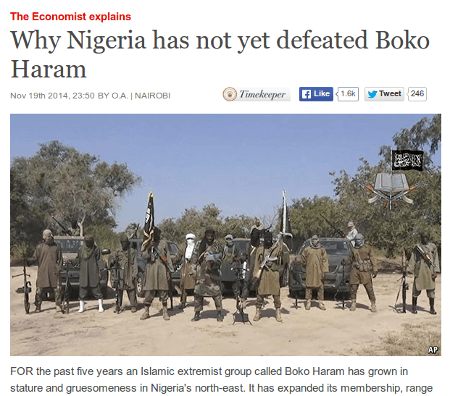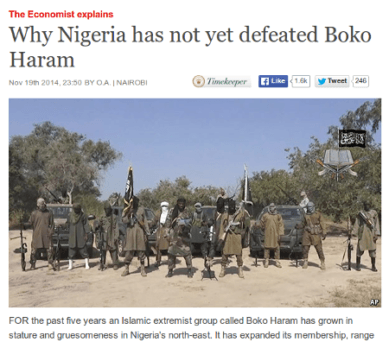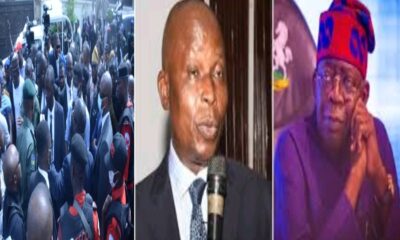Global Issues
‘The Economist’ Explanation About Boko Haram Was Wrong

Recently, precisely on the 19th of November 2014, The Economist website published an article titled, Why Nigeria has not yet defeated Boko Haram, written by an author who went by the name “O.A”, from Nairobi, Kenya. The big picture that The Economist through its author tried to paint to the world is a Boko Haram whose true motivation and intention lied not so much on religious fanaticism but more on governments neglect. The writer tried so hard to paint a scintillating picture to draw sympathy for the Islamic sect. I have given this line of thought before and i will take this opportunity to reiterate in order to set the records straight, Boko Haram cannot and should not be compared to the Movement for the Emancipation of the Niger Delta, MEND, their goals are different and operational methodologies unsyncable.
If there was ever a time that the Boko Haram members thought of government’s neglect as a reason for waging war on the land, then this was during the conceptualization stage and not in its implementation. Unlike what most people, especially the likes of The Economist author think, Boko Haram wasn’t even really waging war due to its dislike of Western Education, but for its dislike of Western Values. Till tomorrow, the group still hold this believe dear to their hearts and they fight to actualize this goal of theirs, with the creation of their own Islamic nation, guided by Sharia Law and teachings.
Yes the Nigerian government are highly corruption, deceptive and lack respect for the Rule of Law; Yes the disconnect between the people and the government is overwhelming; Yes the gap between the rich and the poor is unthinkably irresponsible; Yes the leaders in the land have failed to provide good governance as a stepping stone for genuine development in the country considering its size and resource abundance…however, all of this does not concern Boko Haram, not even a bit do they care about the life lived by other Nigerians in the country. Have you not wondered why the ordinary people on the street, the market woman, the children in the schools, the spiritually minded in the Church or Mosque, are their target, because their message is to the government and the people are a means to an end, for them, a justifiable end.
I can go on and on trying to get you facts and maybe, figures, but i won’t do that. My suggestion to you will be that when next you choose to write on a delicate issue such as this, do a comprehensive research in order to have more knowledge of your chosen topic and quit writing like an armature.




















